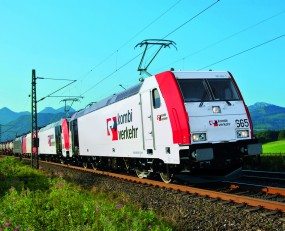
Kombiverkehr has launched a new shuttle train service between Duisburg-Ruhrort Hafen and the Dutch port terminal of Moerdijk.
The new connection enables Kombiverkehr to increase the existing range of services to and from the Netherlands by another three train pairs a week. The aim is to gradually increase the frequency of services to five departures a week in each direction.
The port terminal of Moerdijk also provides access to the ferry services to and from Great Britain operated by the A2B shipping company. The new service between Duisburg-Ruhrort Hafen and Moerdijk with a direct ferry link to and from Great Britain provides an opportunity to have consignments moved by means of climate-friendly intermodal transport.
The newly introduced service is accompanied by extra capacity on many of the company’s existing routes, the purpose of which is to boost business with Italy and northern Europe in the long term. More precisely, Kombiverkehr increased capacity to and from German Baltic Sea ports and between Germany and Italy.
Namely, as of 1. January 2017, Kombiverkehr started operating another 2,000-tonne train inside Germany five times a week on the line from Duisburg to Hamburg-Billwerder. This train links with the German Baltic Sea ports and various terminals in northern Europe.
Furthermore, with the volume of transport between Germany and Italy continuing to rise, Kombiverkehr has added ten additional weekly departures to the existing number of trains between Germany and Verona. This means that the company now provides a total of 120 weekly train departures on the main alpine crossing via the Brenner Pass.
In the national network, Kombiverkehr introduced a new shuttle between Cologne and the BASF terminal in Ludwigshafen.
Robert Breuhahn, Managing Director of Kombiverkehr, said, “We are responding to customer requests for more capacity on selected routes with the revised timetable for 2016/2017. The train between Cologne and Ludwigshafen only covers a distance of around 240 kilometres and is a good example of how intermodal services can even be operated on shorter routes, as long as the trains also provide an important feeder service within the network”.
Source: Kombiverkehr